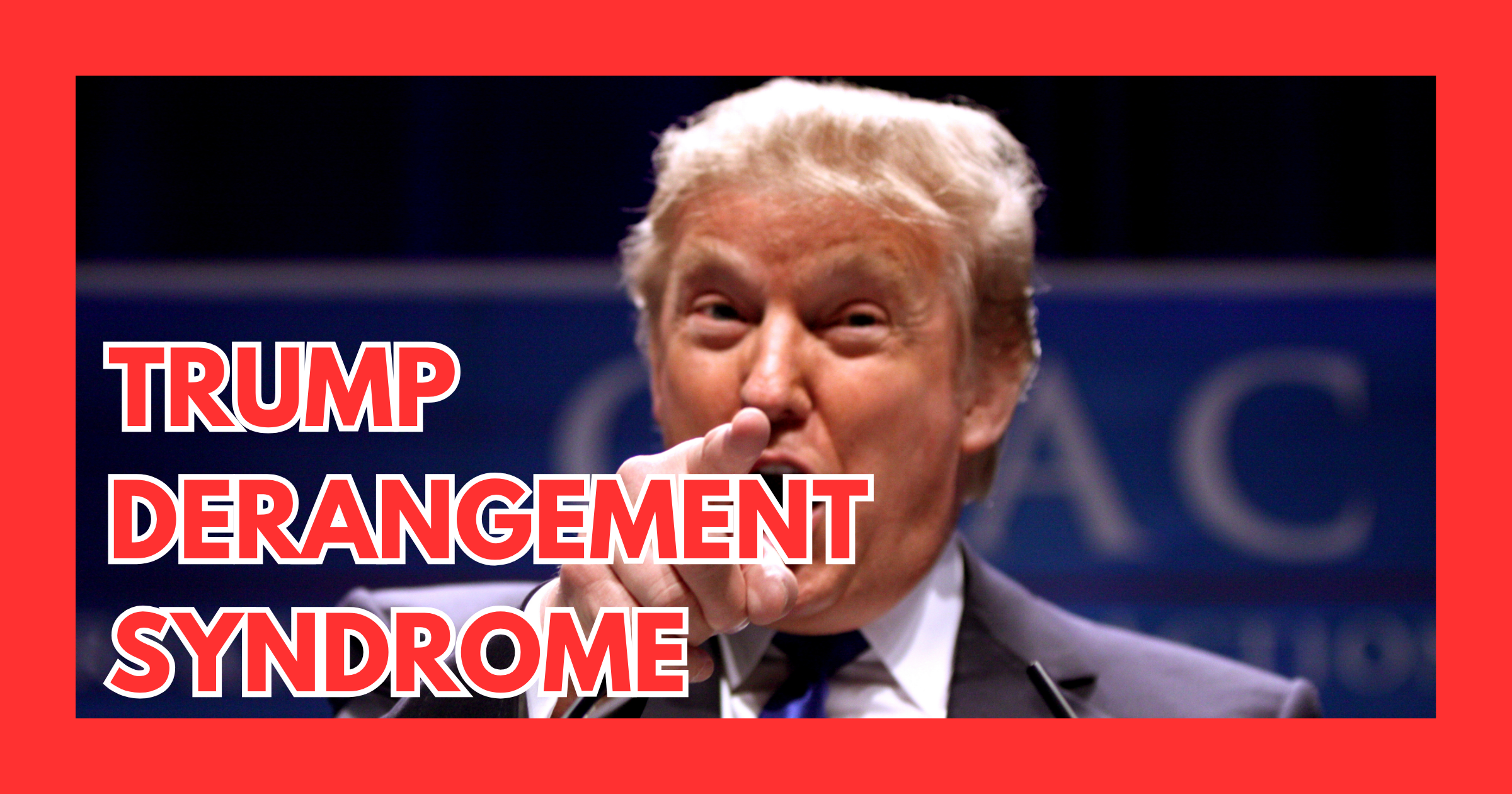
Gage Skidmore from Peoria, AZ, United States of America, CC BY-SA 2.0-via Wikimedia Commons
Trump Derangement Syndrome: The Label That Silences Dissent
In Trump’s world, dissent isn’t opposition. It’s illness.
by Met Middleson
June 6, 2025
It started as a meme. Then it became a punchline. Now it functions as a political weapon. “Trump Derangement Syndrome,” originally aimed at Democrats and media figures, has evolved into a catch-all diagnosis for anyone who falls out of favor with Donald Trump or challenges the movement built around him. Today, the label was turned on Elon Musk. The man who helped fund Trump’s return to power is now being dismissed as unstable. In Trump’s world, loyalty is not just expected, it is the only thing that keeps you sane.
WHAT IS ‘TRUMP DERANGEMENT SYNDROME’?
The phrase “Trump Derangement Syndrome,” often shortened to TDS, first gained traction during the early years of Trump’s presidency. It was coined by critics of his critics, meant to describe a kind of irrational and obsessive opposition to Trump’s every move. In tone, it borrowed from “Bush Derangement Syndrome,” a term used in the 2000s by columnist Charles Krauthammer to characterize reflexive hatred toward President George W. Bush. But where that label stayed mostly in pundit circles, TDS moved fast. It became a viral insult on social media, a punchline on talk shows, and eventually, a fixture in Trump’s own rhetoric.
More than just a label, TDS became a way to dismiss criticism without engaging it. If someone opposed Trump, their motives no longer needed to be questioned—their mental state did. The diagnosis framed dissent as delusion and opposition as a kind of illness. It was never about policy disagreement. It was about pathologizing anyone who rejected Trump’s legitimacy, methods, or morality. And it worked. The term became an easy way to categorize journalists, academics, former officials, and even voters as irrational actors whose views didn’t need to be heard.
A TOOL TO DISCREDIT, NOT DEBATE
Calling someone “deranged” changes the conversation. It doesn’t challenge their argument. It erases it. Trump Derangement Syndrome has become a way to bypass substance altogether. It treats criticism not as disagreement, but as evidence of instability. If you question Trump, you’re not mistaken—you’re mentally unfit. That framing does more than protect Trump. It protects his supporters from having to wrestle with uncomfortable facts. It draws a line between believers and doubters, and it makes the doubters disposable.
The result is a kind of rhetorical immunity. When every critic is dismissed as irrational, no criticism needs to be taken seriously. The label doesn’t just target liberals or media figures anymore. It is now being used on former insiders, donors, and allies. People like Elon Musk. People who once praised Trump, funded his campaign, and stood behind his desk. That’s the quiet power of the phrase—it doesn’t defend a position. It invalidates the person holding the other one.
USED ON THE LEFT – NOW TURNED ON THE RIGHT
When the phrase “Trump Derangement Syndrome” first entered the political bloodstream, it was aimed squarely at the left. Liberals were mocked for being too emotional, too reactive, too obsessed. The phrase became a way to dismiss every criticism as hysterical overreach. But over time, the diagnosis expanded. It was no longer reserved for pundits or protesters. It began showing up in internal fights, used against Republicans who broke ranks, former staffers who told the truth, and even conservative donors who dared to push back.
Today, it landed on Elon Musk. One of the wealthiest people in the world. A megadonor. A man who played a major role in reelecting Donald Trump. Now, because he criticized the administration’s policies, Trump says Musk has Trump Derangement Syndrome. The insult is no longer just a shield from outside attacks. It is a warning to those inside the tent. Praise is remembered. Dissent is punished. And disagreement is not permitted without a label.
THE PSYCHOLOGY OF CONTROL
Framing criticism as a mental condition does more than deflect a bad headline. It establishes a hierarchy of sanity. Those who remain loyal are clear-eyed and rational. Those who dissent are unstable. The phrase reinforces a binary: either you are on Trump’s side, or you have something wrong with you. That creates a powerful incentive to stay in line, not just politically but emotionally. People stop questioning the leader not because they are convinced, but because they do not want to be labeled defective.
That same binary has been explored in depth by clinical psychologists, including in a Psychology Today analysis of the paradox behind Trump Derangement Syndrome. It noted that the term reflects more about the insecurities of the accuser than the accused, functioning as a shield against cognitive dissonance.
This tactic isn’t unique to Trump. It is common in authoritarian environments. The goal is not to win arguments. The goal is to make disagreement so costly that no one wants to try. In this context, “Trump Derangement Syndrome” works like a firewall. It keeps followers inside the narrative and warns others what happens if they step out. That political logic became literal in 2024, when a group of Minnesota lawmakers introduced a bill that would classify “Trump Derangement Syndrome” as a diagnosable mental illness. The proposal never advanced, but it showed the term had traveled from internet insult to legislative threat. It replaces dialogue with diagnosis. And in doing so, it turns loyalty into a survival mechanism.
WHEN CRITICISM ISN’T ALLOWED, EVERY EXIT IS INSANITY
The use of “Trump Derangement Syndrome” on Elon Musk says more than Trump may have intended. It signals that no one is immune. Not donors. Not allies. Not billionaires. Even the people who helped build the movement can be cast out the moment they question it. And once they are out, the diagnosis begins. Their ideas are not engaged. Their motives are not considered. Their sanity is questioned, and their voice is erased.
This pattern tells us something deeper about the state of Trump’s political orbit. If every critic is dismissed as deranged, there is no room for reflection or growth. Only obedience. In that world, leaving is not a choice. It is a breakdown. The term “Trump Derangement Syndrome” is not just a defense mechanism. It is a warning to anyone who might think about stepping away. You are either loyal, or you are lost.
In the end, calling someone “deranged” for leaving says more about the group than the individual. It suggests the system can’t tolerate introspection, only allegiance. Elon Musk is just the latest to find out what happens when admiration turns into objection. And if this movement has no room for honest disagreement, not even from its most powerful supporters, then maybe it is not strength that holds it together. Maybe it is fear.



